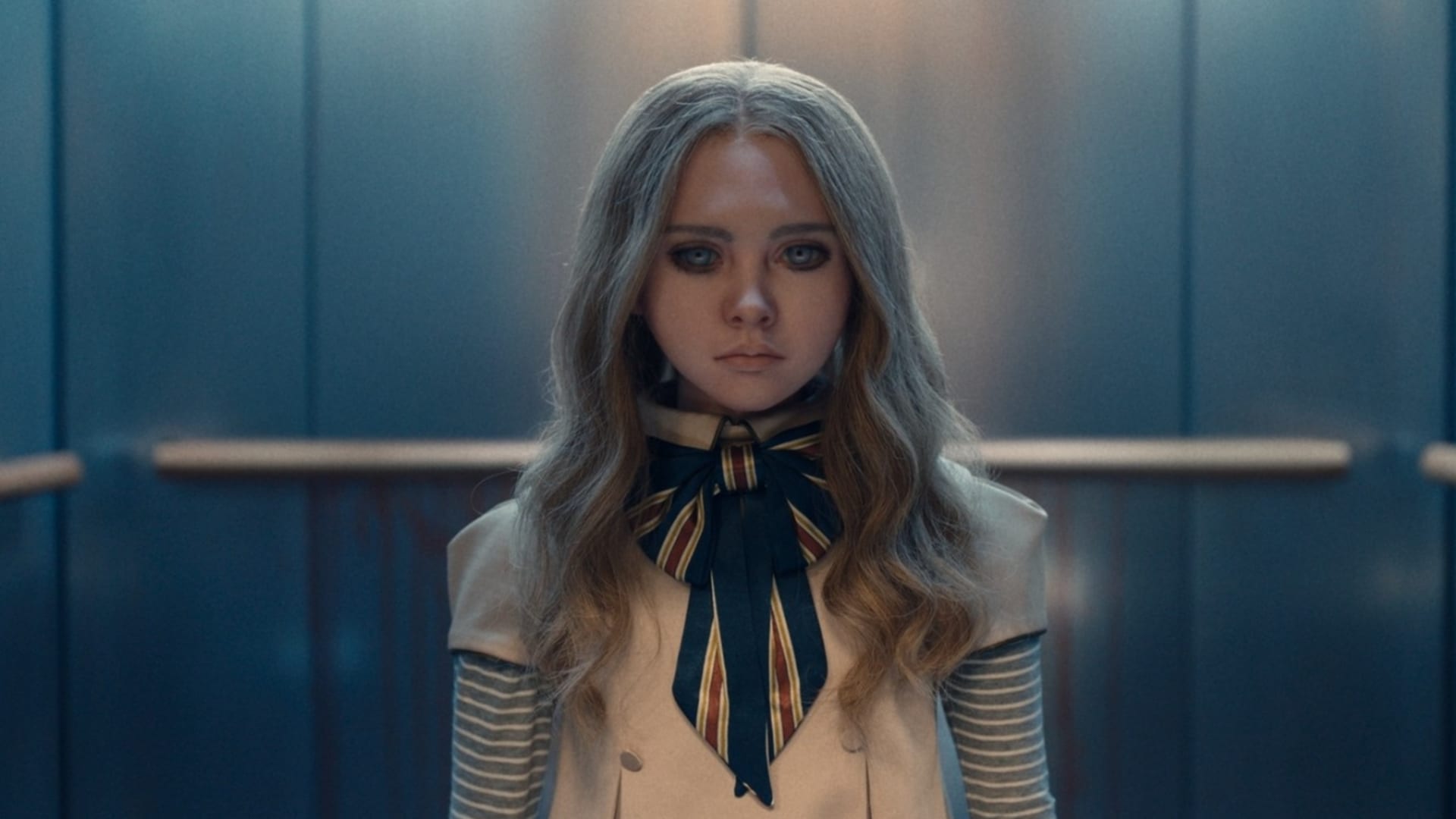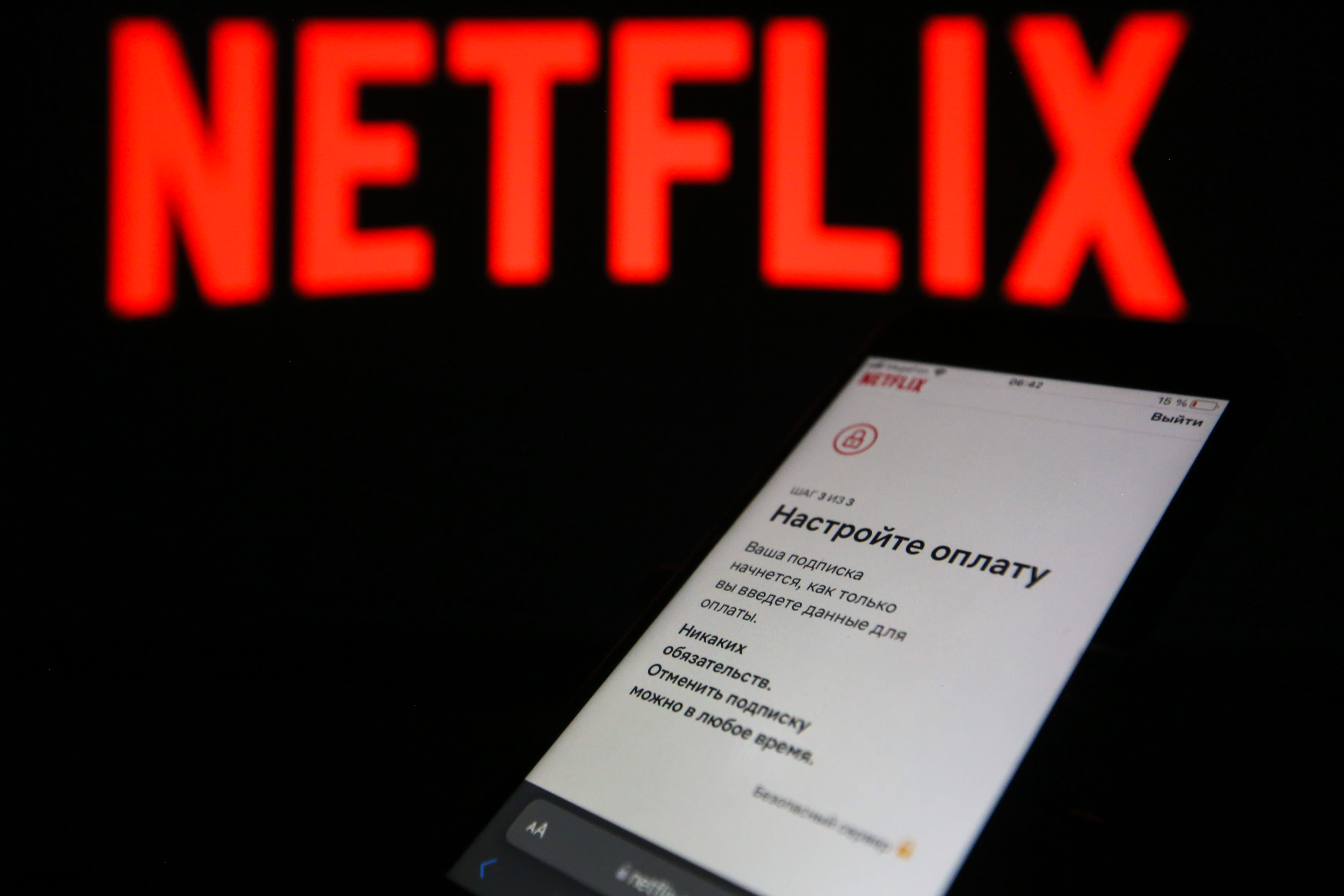
A lifelike doll programmed to be a child’s greatest companion and a parent’s greatest ally turns murderous in Universal Studios and Blumhouse’s “M3GAN.”
Universal
A fashion-forward, murderous doll is ringing up big bucks at the box office.
“M3gan,” the newest release from the Universal Studios and Blumhouse collaboration, will end up with more than $100 million globally. It’s the latest success in a string of lucrative theatrical runs for the horror genre.
While Hollywood’s big-budget blockbusters typically get the most attention, the consistently strong performance of scary movies at movie theaters is good news for the cinema industry.
The pandemic fundamentally altered how and where consumers view entertainment. To be sure, people have returned to theaters, but not in the same volume as pre-pandemic times. Additionally, fewer theatrical releases have resulted in a smaller overall box office in the last year. The domestic box office reached $7.5 billion in 2022, better than $4.58 billion collected in 2021, but down around 34% compared to 2019.
Films like “M3gan” collectively add incremental value to the box office. In 2022, the horror genre accounted for around $700 million in domestic ticket sales, according to data from Comscore. While that figure is down compared to pre-pandemic levels, it indicates persistent demand for spooky entertainment as the theater business rebounds.
A scary good year
Paramount and Universal were the top contributors of horror content last year. Paramount’s “Smile” sold $105 million in tickets domestically and $217 million globally. Its newest installment in the Scream franchise took in $81 million in the U.S. and Canada and $137 million worldwide.
Universal’s “Nope” generated $123 million domestically and $171 million globally, while “The Black Phone” scored $90 million stateside and $160 million worldwide. The studio also released “Halloween Ends,” leading to $64 million in domestic ticket sales and $104 million globally, even though it hit streaming service Peacock the same day.
Ethan Hawke stars in Blumhouse and Universal’s “The Black Phone.”
Universal
Additionally, Disney‘s Searchlight Pictures released “The Menu,” which snared $38 million domestically and $70 million worldwide.
Notably, Disney and Marvel Studios’ “Doctor Strange in the Multiverse of Madness,” which features horror elements, was not included in the tally. The film generated $411 million during its run in the U.S. and Canada and nearly $1 billion worldwide.
“We’re in the middle of horror’s new golden age,” said Shawn Robbins, chief analyst at BoxOffice.com. “It’s a genre that has ebbed and flowed in past decades but one that’s always evolved, maintained commercial appeal, and helped introduce new filmmakers to the world.”
Here are several titles to expect from the horror genre in 2023:
- Universal’s “Knock at the Cabin” — Feb. 3
- Paramount’s “Scream VI” — March 10
- Sony’s “Insidious: Chapter 5” — July 7
- Warner Bros.’ “The Nun 2” — Sept. 8
- Neon’s “Cuckoo” — Sept. 29
- Universal’s “The Exorcist” — Oct. 13
- Lionsgate’s “Saw X” — Oct. 27
Scaring up dollars
Blumhouse, a producer of “M3gan,” has revolutionized the horror genre in the last decade, turning small budget flicks into huge box-office returns. The studio has been responsible for the profitable and popular “Paranormal Activity” films as well as the Academy Award-winning “Get Out.”
“Paranormal Activity,” which was released in 2009, had a budget of just $15,000 and went on to make more than $107 million in the U.S. and nearly $200 million worldwide
Following that model, “M3gan” was made for just $12 million and is on its way past $100 million. Already, Universal and Blumhouse have greenlighted a sequel due out in 2025.
Still from Universal and Blumhouse’s “M3GAN.”
Universal
Last year, most wide-released horror films had a budget of between $16 million and $35 million. The only outlier was “Get Out” director Jordan Peele’s “Nope,” which carried a $68 million production budget. Films with smaller budgets mean don’t have to generate blockbuster-size ticket sales in order to turn a profit. Those economics also help to make horror films one of the most consistently well-performing genre of all time.
For example, consider “Skinamarink,” an experimental horror film out of Canada, which cost $15,000 to make and has gone on to generate more than $1 million at the box office.
“At the heart of its sustainability has been a generational turnover of young audiences that drive many of these movies at the box office, a pre-pandemic constant that’s picked up right where it left off as post-pandemic moviegoing has rebounded,” Robbins said.
Unlike fans of comic book films, who can be easily turned off by an unfaithful adaptation of their favorite character, horror fans don’t seem to mind if the film isn’t totally up to par. So long as the movie had some good scares and was seen as a fun experience, they’ll be back for the next installment.
Additionally, in the last two decades, the quality of the horror genre has greatly improved, due in large part to support from indie companies such as A24 and Neon, as well as distribution from streaming services such as Netflix, Hulu and Peacock.
“A systematic, incremental increase in the quality of horror films, a genre that was once considered the smash and grab, take the money and run, open on Friday, close on Sunday genre, has now, with the creative vision of amazing production companies and brilliant filmmakers, earned respect of critics and audiences alike,” said Paul Dergarabedian, senior media analyst, at Comscore.
“M3gan,” for example, currently holds a 95% “Fresh” rating on Rotten Tomatoes.
“The genre and its audience are invaluable to the industry ecosphere, and 2023’s promising release slate looks to help maintain that status quo,” Robbins said.
Disclosure: Comcast is the parent company of NBCUniversal and CNBC. NBCUniversal has a partnership with Blumhouse and owns Rotten Tomatoes.


